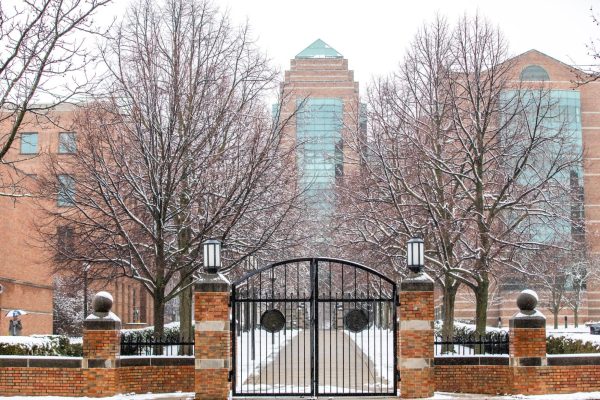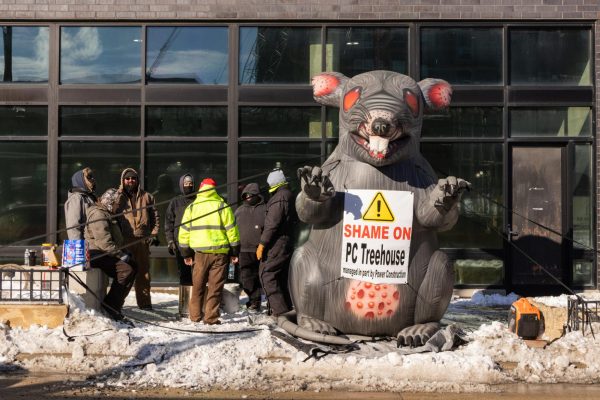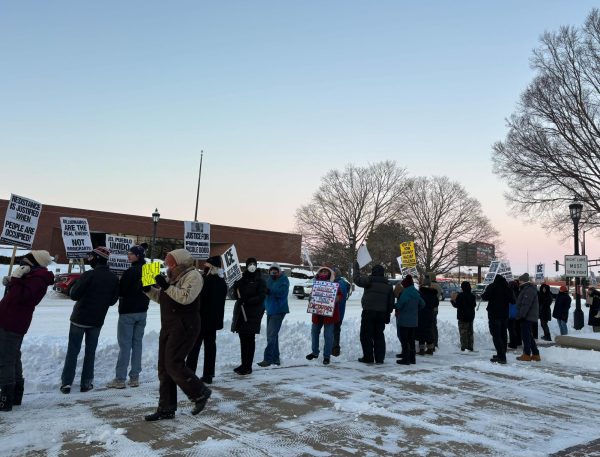A lesson learned
Nov 12, 2004
Most of us aren’t role models. Me, you, the guy next to you on the bus, the girl behind the counter at Subway – consequences aren’t attached to every little thing we do. Very little of what I do with my life affects the lives of people who share a bus with me or ask me if I would like cheese on my sandwich.
Sure, some of us might have brothers, sisters, cousins and close friends who look up to us and might even try to emulate our lifestyles in some cases. But just imagine being Michael Phelps last Saturday when he was charged with drunken driving. Imagine if millions of people looked to you as an inspiration – someone to admire. Scary, isn’t it?
That’s the way many of us treat our favorite athletes. I’m guilty of it. Two pictures of my favorite athletes who I consider personal role models hang on my bedroom wall – Michael Jordan and Tiger Woods.
Jordan was the best at what he did, but he still found the time and effort to keep working, which ultimately made him even better.
A quote from Woods accompanies his photo: “I know what I want to accomplish, and I know how to get there. The ultimate is to be the best.” That mirrors what Jordan was all about, and I find their work ethics inspirational.
Get The Daily Illini in your inbox!
Athletes are role models, even if some of them don’t think it should be that way. But at the same time, athletes are regular people. Nobody is perfect, and sometimes we forget that includes the people whose pictures we frame and hang on our walls.
Jordan and Woods are by no means people to model your all-around-self after. I don’t gamble, nor do I blow up every time a friend of mine breathes deep during my backswing on the golf course. Because Jordan and Woods do these things, does it make them bad role models? I don’t think so. If anything, we can learn from our role models’ mistakes and apply them to our lives.
The Michael Phelps drunken driving incident last week was unfortunate, but we forget that he’s only 19 years old. That means he’s about the same age as the students here on campus.
Take one look around campus when the bars close tonight and it will be obvious many of us think we’re untouchable.
Some will drink themselves to the hospital. Some will drink their way into fistfights.
Some will disregard the “DONT WALK” signs posted on street lights on their trips back home. Some will play music at 4 a.m. so loud that their neighbors won’t be able to sleep.
We live our young, naive lives as if nothing bad can ever come of our actions, and we’re just regular old college students.
Phelps is no regular 19-year-old. Every morning, young children reach for a box of Wheaties with his face on it. Speedo pays him six figures to wear its swim gear. Verizon Wireless features him in its commercials. The Baltimore Ravens asked him to make an appearance before their game last weekend. Every morning, the sun peaks through Phelps’s windows and shines off his six Olympic gold medals.
And we think we’re on top of the world.
Imagine what it must feel like to be in Phelps’s world. It’s tough to put all the blame on Phelps and completely forget about the media, the sponsors and the success.
But at the same time, he did make a mistake – a mistake that could have killed him, his two friends in the car or anyone else on the road last Thursday – a mistake any of us could make if we’re not careful.
Many of us marveled at Phelps’ performance in Athens, and rightly so, but at the same time let us marvel at his mistake as well. From now on, when we chose to position ourselves in potentially compromising situations, let Phelps’s mishap serve as a reminder that the world does not, in fact, revolve around any of us.
Mike Szwaja is a senior in communications. He can be reached at [email protected].





